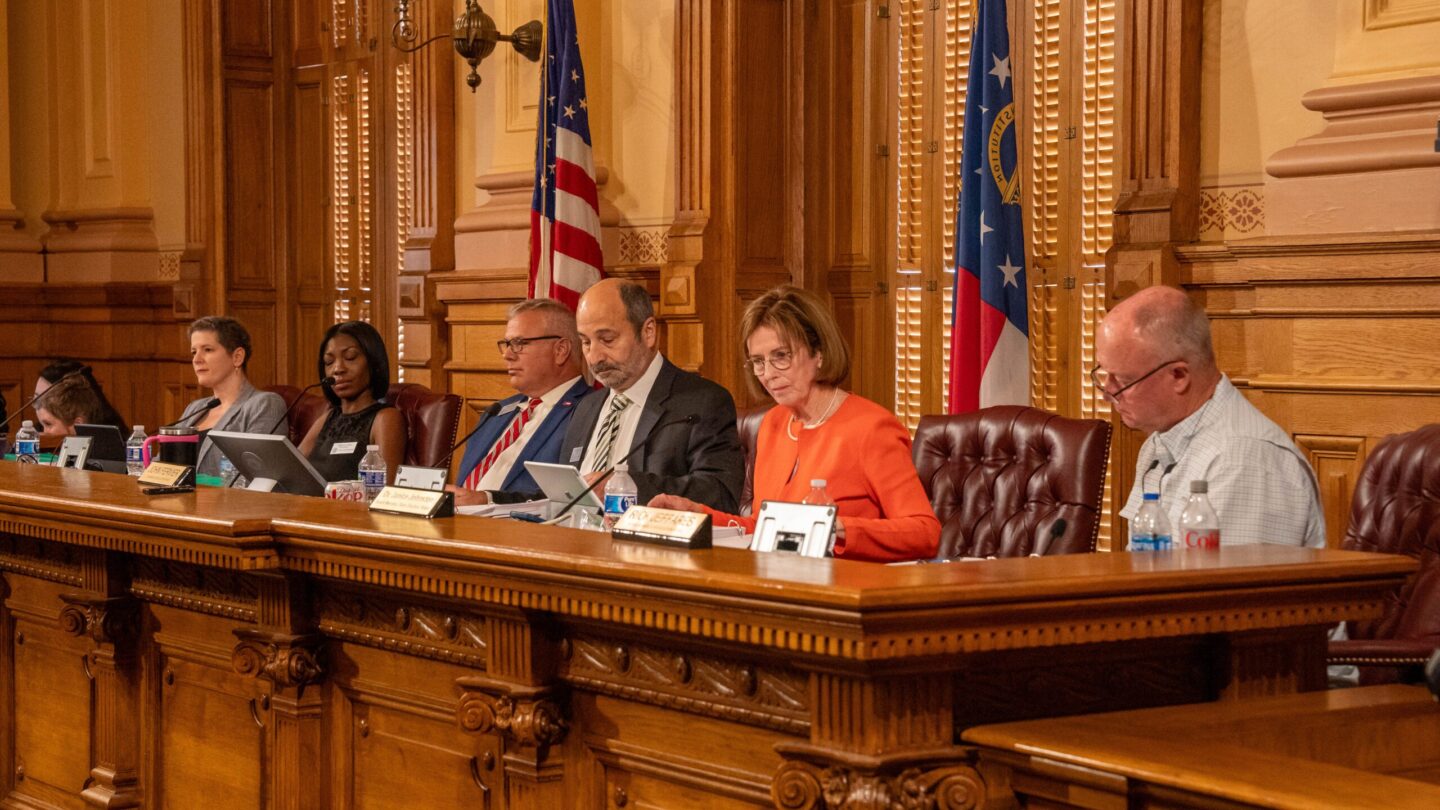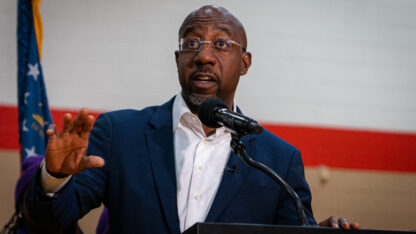The Georgia State Election Board continues to make significant changes to election rules as absentee ballot applications open for the November election and the body faces growing scrutiny.
The latest change could result in more local election board members refusing to certify election results. The rule, approved Monday, goes further than a similar measure that spurred blowback when it passed earlier this month.
It specifies that if local election board members identify a discrepancy between the ballot count and the total number of voters, “no votes shall be counted from that precinct,” pending an investigation. If board members identify an error that they deem cannot be corrected, the board “shall determine a method to compute the votes justly.”
Most mainstream legal experts say election boards in Georgia do not have this discretion, and challenges to the results must be dealt with in the courts.
“It has the potential for individual precincts to be targeted for the exclusion from certified results for single discrepancies that may be real, perceived or imagined,” Marisa Pyle, the senior democracy defense manager of nonpartisan group All Voting is Local, told the board during the Monday meeting.
A trio of conservative attorneys testified on behalf of the rule: Ken Cuccinelli, a former Department of Homeland Security official during the Trump administration; the Heritage Foundation’s Hans von Spakovsky; and Harry MacDougald, an attorney representing former Trump Justice Department official Jeffrey Clark as he faces charges for attempting to overturn the 2020 election.
“Unless a board member has full confidence in the administration of the election, that it was done without error, they should not certify the election,” von Spakovsky testified.
The state board’s three Republican members, Dr. Janice Johnston, Rick Jeffares and Janelle King, backed the measure, over the opposition of Democrat Sara Tindall Ghazal and nonpartisan chair John Fervier. “We are not elected officials and we shouldn’t try to create law,” Fervier said. “And I see this as one of those that’s outside of our authority.”
Under the new rule, local board members would also have the right to examine any election-related documentation “prior to the certification of results.”
“These documents could range from training manuals to hiring documents to poll watcher credentials, meeting minutes, polling place agreements and much more — all potential bases for ‘discrepancies’ by anyone who is seeking to undermine faith in the legitimacy of our election results,” Pyle said.
Republican member King flipped that framing.
“You’re asking us not to support these rules because you assume they’re based on chasing conspiracy theories, while the opposition’s perspective is based on a theory that there could be something wrong going forward,” King said.
Board members face growing scrutiny
The vote comes as many election law experts, Democrats and even a handful of Republican officials are raising alarms about some actions of the board’s three Republicans.
In a Monday letter obtained by WABE, Georgia House Democrats pressed Republican House Speaker Jon Burns to replace his board appointment, Janelle King, writing that the three Republicans together “have formed a majority voting bloc that has repeatedly approved rules that are unlawful, exceed the Board’s authority, and are poor public policy.”
At a recent Atlanta rally, former President Donald Trump praised the three members by name as “pitbulls fighting… for victory.” Burns elevated King in May after party activists ousted Ed Lindsey, a Republican lawyer who often voted to stymy the efforts of activists pushing false claims about election fraud.
In an official opinion published Monday, Georgia Attorney General Chris Carr, a Republican, said he would not comply with a directive advanced by the board’s Republicans earlier this month to reopen an investigation into the 2020 election in Fulton County.
“The authority to investigate potential violations of the election laws rests with the SEB and not with the Attorney General,” Carr wrote. “This Office is not required to conduct an investigation on its own or with outside personnel at the direction of a client agency.”
Georgia’s Republican Secretary of State, Brad Raffensperger, has also slammed the new measures focused on the certification process, saying that Georgia law requires local boards to certify elections.
“Activists seeking to impose last-minute changes in election procedures outside of the legislative process undermine voter confidence and burden election workers,” Raffensperger wrote in a recent statement.
The latest certification rule was proposed by Bridget Thorne, a Republican Fulton County commissioner and prominent voice raising doubts about Georgia’s election integrity.
Recent reporting from ProPublica raised questions about the activist groups and figures who may have helped craft the rule change. At Monday’s board meeting, Democratic member Tindall Ghazal asked Thorne: “Who actually wrote this?”
“I’m in conversations with lots of people in election integrity,” Thorne said. “This is something that’s been put together in a collaborative effort by numerous people and numerous groups that have their hands in it.”
Thorne referenced Heather Honey, who leads the Election Research Institute, Republican member Johnston and the two Republicans on Fulton County’s election board. One of those members, Julie Adams, has more than once voted against certifying elections since she joined the board this year.
Adams declined an interview, citing the ongoing litigation. Both Honey and Adams are connected to the Election Integrity Network, a group founded by activist Cleta Mitchell, a lawyer who was involved in Trump’s efforts to overturn the 2020 election result.
More rule changes to come
The state board meets again Sept. 20 and is expected to consider additional rule changes that could take effect before the November election. Early voting begins Oct. 15.
Among the proposals up for final approval next month: a rule requiring three precinct poll officers to independently hand count every physical ballot to ensure the number matches the machine count.
Multiple election officials testified against this rule. Some raised questions about the ability of poll workers to accurately count ballots after long hours working the polls — election experts say hand counts are less reliable than machines. Others flagged concerns about ballots passing through so many hands.
“You will be setting 159 counties up for failure on election night,” said Deidre Holden, the Paulding County elections director. “You will be responsible for delaying the results in the most crucial election that has been conducted in the state this year.”
Though the board ultimately agreed to an amendment extending the deadline for the hand count beyond election night, Democratic member Tindall Ghazal warned of the consequences of approving so many sweeping rule changes with little time to spare before the election.
“The conditions that exist today existed a year ago, two years ago, three years ago,” Tindall Ghazal said. “Changing the rules when voting is basically starting right now is something that is devastating to election administration and public confidence.”









